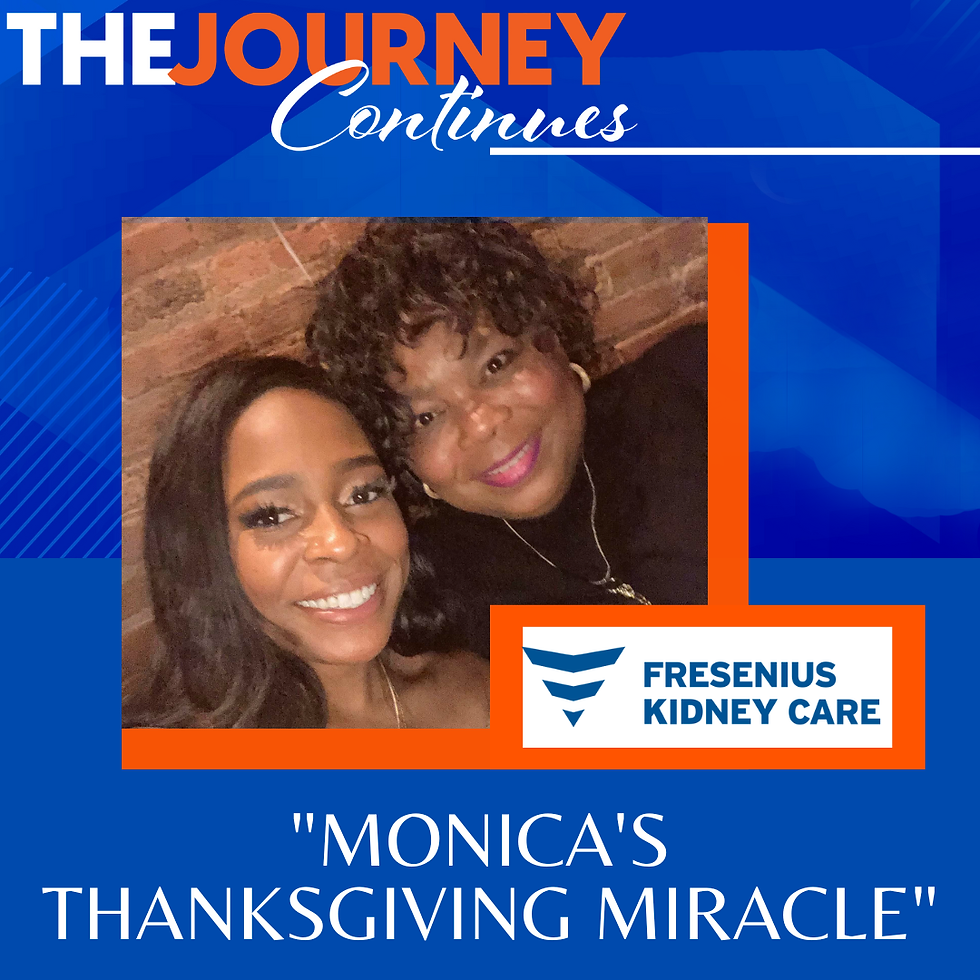NBC5: Tinley Park Woman Determined to Donate Kidney to Save Husband's Life
- The Bean
- Apr 28, 2023
- 3 min read
LaVerne Bartee started the process of living donation without telling her husband, Kevin
A suburban man who was in renal failure is now off the wait list for a kidney, after his wife surprised him by going through the process to donate one of her kidneys and save his life.
“Actually you save two people's lives. You save that person you're giving to and you also save the person that's on the wait list, because now he's not on the list, so the kidney that was for him can go to someone else,” said LaVerne Bartee, who donated to her husband of 29 years, Kevin Bartee.
Originally, LaVerne, 51, didn’t think she could donate a kidney to Kevin, 53, because she didn’t think they were the same blood type. Kevin’s blood type is O-positive.
One of the couple’s four children, two sons and two daughters, was undergoing the testing to see if he could donate a kidney to his dad, when LaVerne participated in a blood drive where she works at Comer Children’s Hospital and got good news.
“When I found out I was O-positive, it was just happenstance and I started the paperwork,” LaVerne said.
But she didn’t tell Kevin. “We didn't have a conversation. I told him I'm giving him my kidney and he was just gonna deal with that,” LaVerne said.
“By that time, she had pretty much all of her tests done and she's like, ‘We're gonna do it on January 31. And I still said we haven't talked about it yet, so she was she was definitely running with the ball, and I just couldn't stop it,” said Kevin.
Dr. Rolf Barth, the director of kidney, pancreas and liver transplant and the associate director of the Transplant Institute at UChicago Medicine said LaVerne was giving her husband the best chance at success.
“At our institution, currently right now, it's a 100% one year success rate for living donor kidney,” Barth said.
More than 92,000 Americans are on the wait list right now for a kidney, according to the American Kidney Fund.
Dr. Barth says living donation is the best option, whenever possible.
“Just all the data points to living donation -- that kidneys last two or three times longer than kidneys from people who've passed away,” Barth said. “For every living donor that comes into the donor pool, whether it's for kidneys or livers, it allows another person to get a deceased donor organ. So not only are they doing something wonderful for each other, I mean, it's such a special experience, but they're creating these opportunities for people who don't have living donor options.”
The couple went into the surgery with nothing but optimism. The weekend before, their friends threw a “kidney party” complete with a kidney-shaped cake and a game called “pin the kidney on Kevin,” involving a life-size picture of the kidney recipient.
The transplant happened on Jan. 31, 2023, just as LaVerne had planned, and three months later, Kevin is completely off dialysis and preparing to go back to work.
Surgeons did not remove Kevin’s original kidneys, so he now has three total, although LaVerne’s kidney is working as the functioning one.
LaVerne has not had any serious complications either. “My one kidney is still producing the same as my two kidneys were,” LaVerne said.
The couple from Tinley Park meant what they said in their wedding vows 30 years ago this August.
“Till death do us part,” LaVerne said. “We have too much more life to live.”





Comments